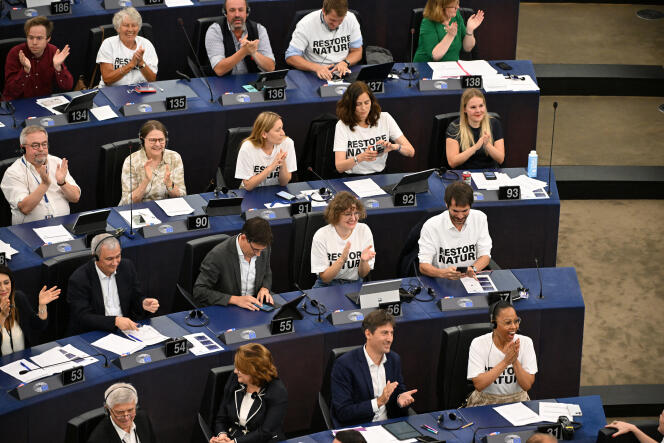


This is, in theory, the end of the drama that has kept the European sphere busy since the summer. On Thursday, November 9, the 27 member states and the European Parliament agreed on a compromise that will enable the European Union (EU) to adopt a law on nature restoration, designed to enact into Community law the Montreal agreement on biodiversity and the need to restore 30% of degraded land and sea areas by 2030, followed by 60% by 2040 and 90% by 2050.
Spain's Minister for Ecological Transition Teresa Ribera Rodriguez, whose country holds the rotating presidency of the EU Council, said she was "proud" of the law, "the first of its kind." "It will help us rebuild healthy biodiversity levels across member states and preserve nature for the future generations while fighting climate change," she said, noting that, according to EU data, over 80% of natural habitats are in a "poor or bad" condition (particularly wetlands, dunes and grasslands), and up to 70% of soils are in poor health.
"Today, there is no continent-wide governance of biodiversity. The legal concept of nature restoration does not exist. This is a significant step forward," said Pascal Canfin, chair of the European Parliament's Environment Committee.
Although the compromise reached on Thursday evening does not guarantee that the EU-27 will achieve this objective – it only sets out obligations in terms of means, not results – it nevertheless gives member states a direction that the European right-wing of the European People's Party (EPP) and the far right did not want to hear about at the start of the summer.
Manfred Weber, president of the EPP, and his populist and nationalist allies demanded the outright withdrawal of this bill, which they claimed would jeopardize food security in the EU and the development of renewable energies. In the run-up to the European elections, scheduled for June 2024, they wanted to make the Nature Restoration Act the emblem of their battle to put a stop to the European Green Deal.
Their attempt partially failed. On July 12, after an epic battle in the European Parliament, MEPs finally adopted a bill that was largely devoid of substance, but which had the merit of existing, and whose adoption alone represented a political victory. Even though the member states reduced the ambition of the draft law proposed by the Commission, the ensuing negotiations between the two co-legislators were not straightforward. "We had a more rational discussion with the EPP than in July," said Canfin.
You have 45% of this article left to read. The rest is for subscribers only.
